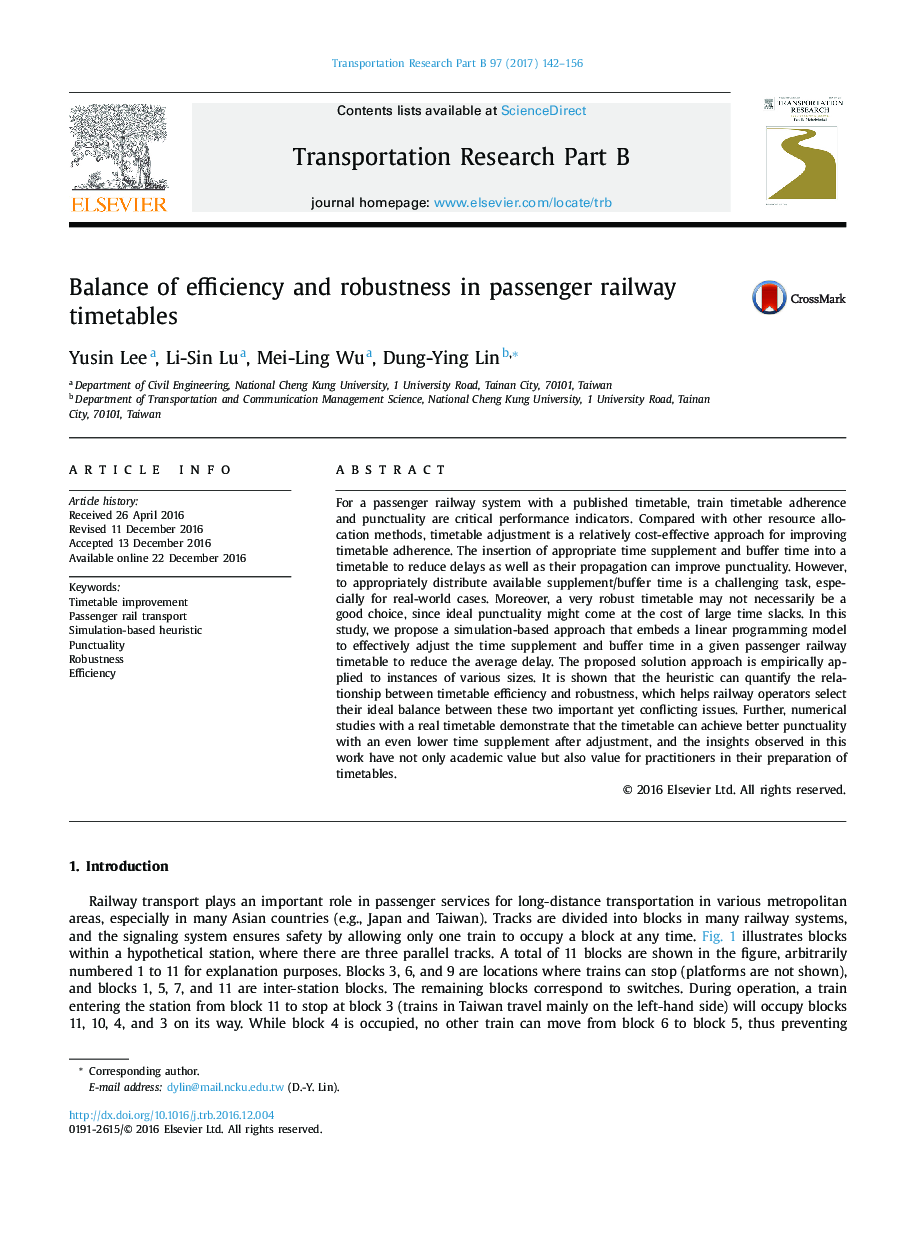| Article ID | Journal | Published Year | Pages | File Type |
|---|---|---|---|---|
| 5127080 | Transportation Research Part B: Methodological | 2017 | 15 Pages |
â¢We study the optimal supplement and buffer allocation problem of a railway timetable.â¢A timetable can be improved with minimal time supplement and buffer time adjustment.â¢The general convex relationship between efficiency and stability is observed.â¢A method to select a time slack that is most beneficial to passengers is suggested.â¢The results highlight the importance for railways to characterize their disturbances.
For a passenger railway system with a published timetable, train timetable adherence and punctuality are critical performance indicators. Compared with other resource allocation methods, timetable adjustment is a relatively cost-effective approach for improving timetable adherence. The insertion of appropriate time supplement and buffer time into a timetable to reduce delays as well as their propagation can improve punctuality. However, to appropriately distribute available supplement/buffer time is a challenging task, especially for real-world cases. Moreover, a very robust timetable may not necessarily be a good choice, since ideal punctuality might come at the cost of large time slacks. In this study, we propose a simulation-based approach that embeds a linear programming model to effectively adjust the time supplement and buffer time in a given passenger railway timetable to reduce the average delay. The proposed solution approach is empirically applied to instances of various sizes. It is shown that the heuristic can quantify the relationship between timetable efficiency and robustness, which helps railway operators select their ideal balance between these two important yet conflicting issues. Further, numerical studies with a real timetable demonstrate that the timetable can achieve better punctuality with an even lower time supplement after adjustment, and the insights observed in this work have not only academic value but also value for practitioners in their preparation of timetables.
